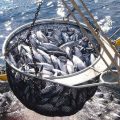Anfaco warns of the “lethal impact” on the canning sector if the EU-Thailand Free Trade Agreement is confirmed.
The European Union is in the midst of negotiations with Thailand for a Free Trade Agreement. This is of great concern to Anfaco-Cecopesca, as the Asian country is the main producer of canned tuna with a current production of 550,000 tons. According to the latest available FAO data, Thailand has a good share of the EU market even without enjoying full preferential access.
“A free trade agreement between the EU and Thailand involving the opening of the EU tuna market would have a lethal impact on the Spanish and EU canning industry, which has invested and invests to develop its activity based on robust health, social and environmental standards. It would mean a break in the competitive balance that would endanger the 15,000 direct jobs in the canning industry in Spain alone,” stressed from Anfaco-Cecopesca.
“The continuist character of the current Thai government headed by the general who led the coup d’état in 2014, generates serious doubts about the existence of a real democracy in Thailand, which is supposed to hold a general election this 2023, and about an effective implementation of the announced advances in the social, labor and environmental fields. For example, in relation to the ILO core conventions, Thailand has not ratified those relating to freedom of association and the right to organize and one relating to occupational safety and health,” they added.
Anfaco-Cecopesca issued a request for the total exclusion of tuna from the scope of this negotiation. In addition, it also calls for the establishment of strong preferential rules of origin with the definition of wholly obtained fish, and only bilateral cumulation for all fishery and aquaculture products that may be affected. She was also concerned about the European Commission’s official announcement on the relaunching of trade negotiations with Thailand.
Following the relaunching of the negotiations in this context, Anfaco-Cecopesca will initiate a round of contacts with the various Spanish and EU administrations in order to convey the sector’s position on negotiations that must take into account the sensitivity of the Spanish and EU industrial fabric. “Otherwise, it will mean the disappearance of a century-old industry in the country, committed to the social and economic development of the regions in which it is located,” added the association.
The Secretary General, Roberto Alonso, pointed out in this regard that “this news is a source of considerable concern in a country, Thailand, with serious and repeated democratic deficiencies, opposing ethical principles, and a lack of effective monitoring and control to ensure compliance with basic community regulations on labor or environmental aspects, despite the sustainable approach that the Commission wishes to justify. This is a competitive disadvantage in the absence of a level playing field. We hope, and so we will actively demand to all the agents involved, that the European Commission reevaluates its decision and in any case imposes the total exclusion of tuna, which under no circumstances can be subject to tariff reduction, a position that we will defend with all the means at our disposal. We will take a firm position, since the contrary would imply the disappearance of our fish canning industry in Spain. We will not allow our history, employment and industrial leadership to be lost”.















